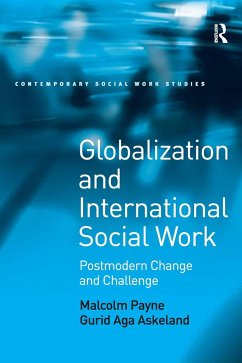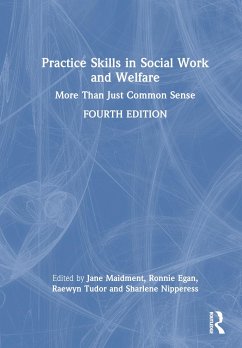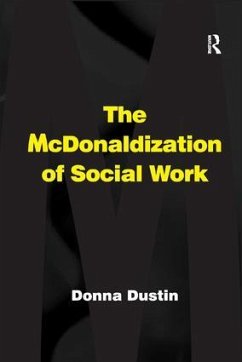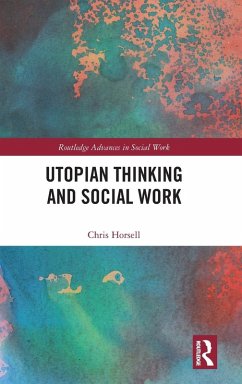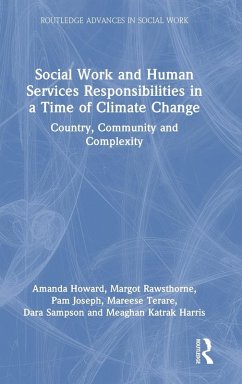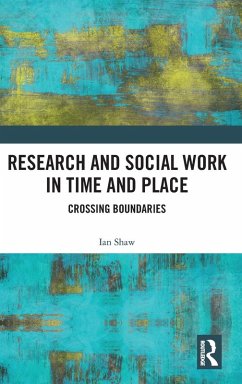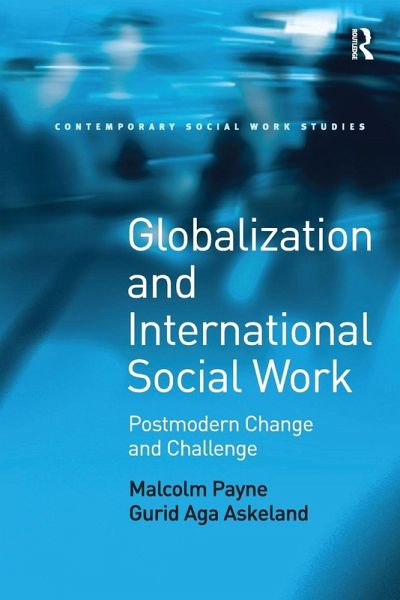
Globalization and International Social Work
Postmodern Change and Challenge
Versandkostenfrei!
Versandfertig in 1-2 Wochen
68,99 €
inkl. MwSt.
Weitere Ausgaben:

PAYBACK Punkte
34 °P sammeln!
Globalization challenges social work with constant social change, making a social worker's job and the task of social work education more complex and uncertain. Post-modern thinking suggests that social workers must learn to cope with complexity in ways that are in tension with the increasingly managerialist organization of the social services. The authors explore and question the concepts of 'postmodern', 'international' and 'global' in light of growing interest in international social work in the early 21st century. Emphasizing the importance of critical reflection, they argue that education...
Globalization challenges social work with constant social change, making a social worker's job and the task of social work education more complex and uncertain. Post-modern thinking suggests that social workers must learn to cope with complexity in ways that are in tension with the increasingly managerialist organization of the social services. The authors explore and question the concepts of 'postmodern', 'international' and 'global' in light of growing interest in international social work in the early 21st century. Emphasizing the importance of critical reflection, they argue that educational colonization can be challenged and effective anti-discriminatory and pro-equality practice and education promoted. Each chapter provides direct examples of how students and academics can apply these ideas in practice and in their learning, and how they can respond to and influence the challenges and changes that are taking place. The authors also examine educational and practice issues arising from attempts to incorporate international understanding into national practice and education systems. The book is designed to be stimulating to academics interested in international social work while remaining accessible to practitioners and students without international experience.





